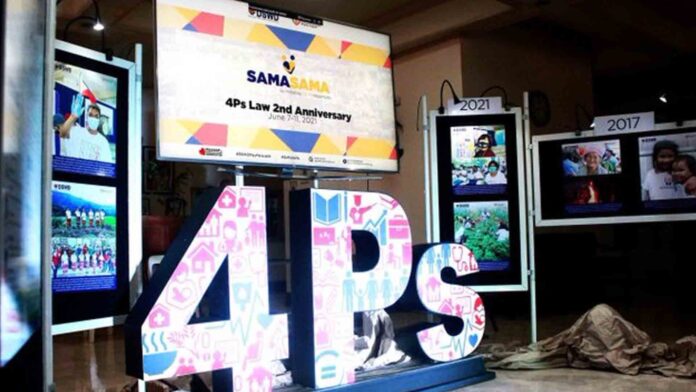The Department of Social Welfare and Development (DSWD) has recorded 24,043 households that have graduated from the government’s flagship program in human capital investment, the Pantawid Pamilyang Pilipino Program (4Ps), since 2020.
The data released on Wednesday was acquired from January 2020 to June 8, 2021.
On June 10, an additional 197 household-beneficiaries of the program were identified by DSWD as self-sufficient.
To be considered a self-sufficient household, the family-beneficiary should have enough income at the time of graduation; is able to cope with daily needs; and has achieved the first two levels of Social Worker Development Indicators, Survival and Subsistence levels.
Even after graduating from the program, the DSWD continually monitors the families through local government units (LGUs) and for possible provision of other appropriate assistance to enable them to sustain or further improve their economic status.
LGUs recently renewed their commitments to have an after-care monitoring program to check on the status of families as part of the sustainability plan of the households upon their exit transition from the program.
Apart from these, other stakeholders guaranteed their continuous assistance in the graduates’ journey to become self-sustaining individuals through the provision of livelihood assistance, skills training, and scholarship for their children.
The 4Ps program, signed into law two years ago as Republic Act 11310, provides conditional cash grants to the poorest of the poor and improves the health, nutrition, and the education of children aged 0-18.
Under the law, the conditional cash transfer grant per child enrolled in day care and elementary programs shall not be lower than PHP300 per month, PHP500 per child in junior high school, and PHP700 per child in senior high school for a maximum of 10 months per year; while the health and nutrition grant shall not be lower than PHP750 per month yearly.
The cash grants are distributed through authorized government depository banks, rural banks, thrift banks, cooperative banks, and institutions engaged in money remittances duly accredited by the Bangko Sentral ng Pilipinas. (PNA)






